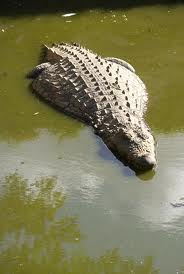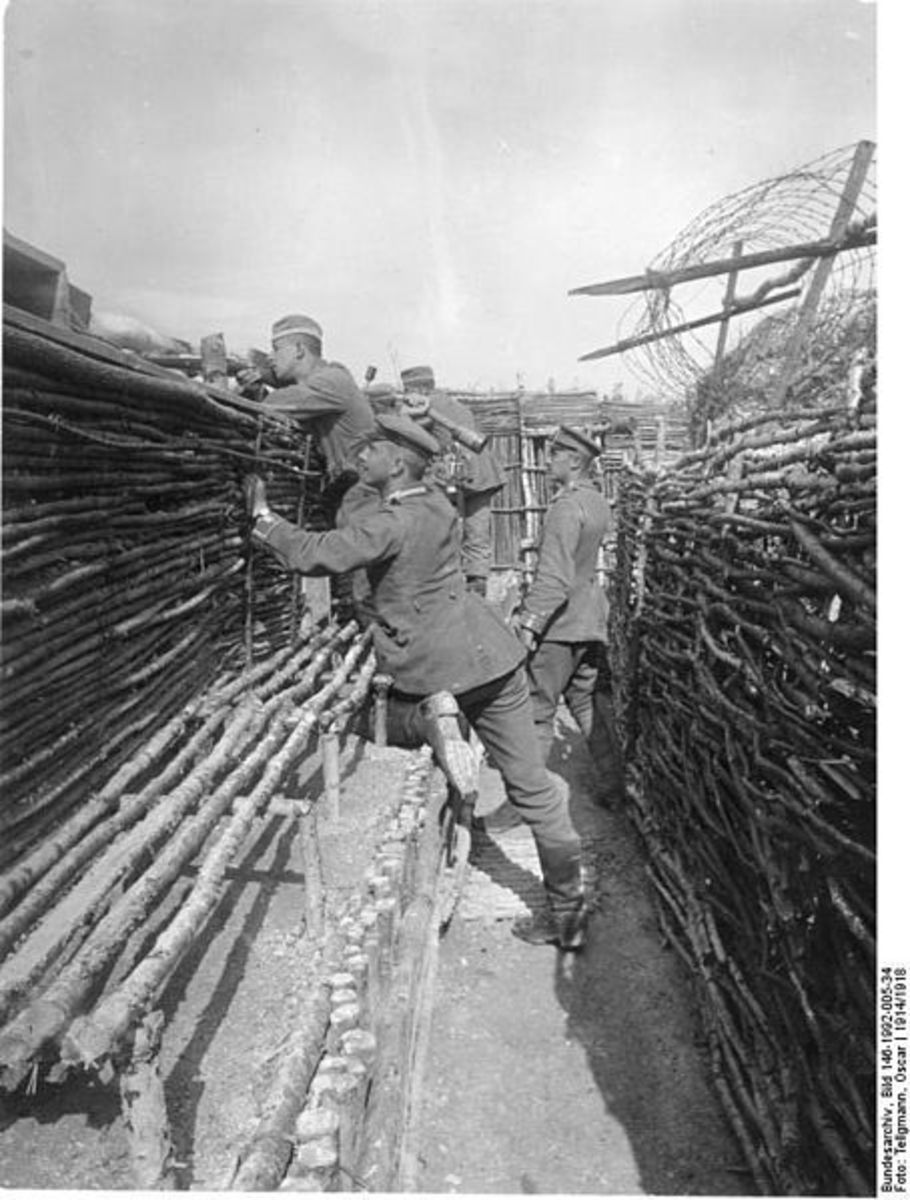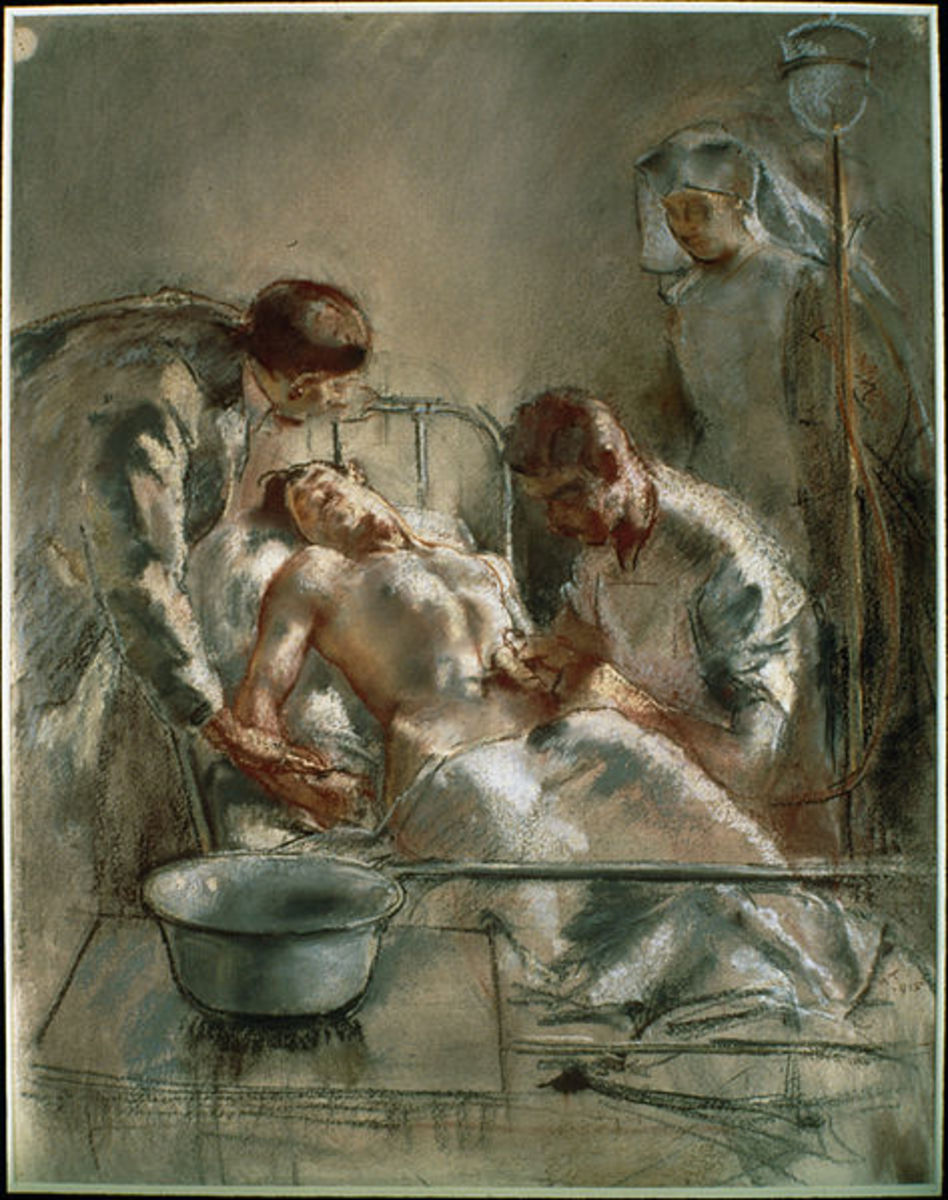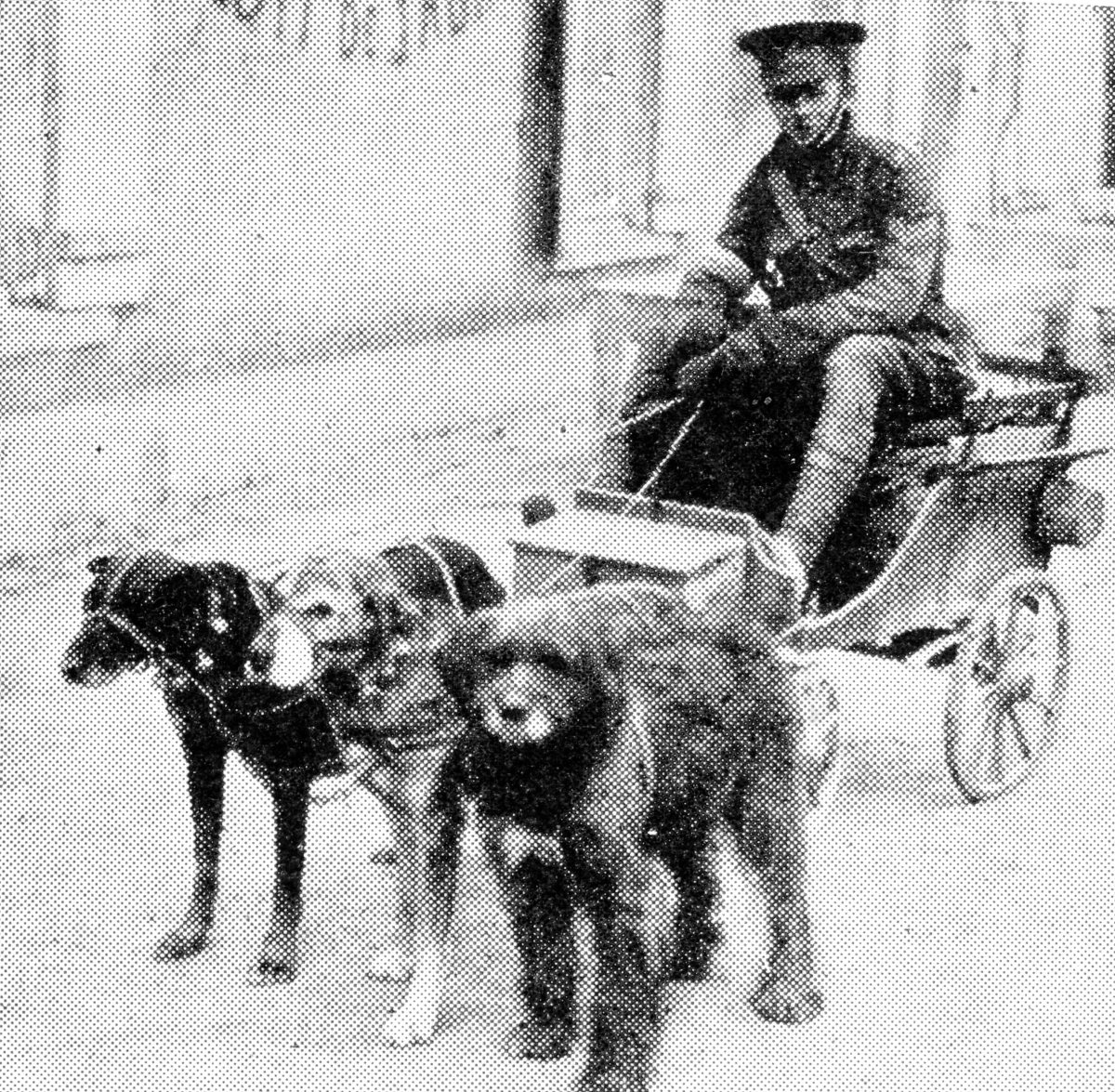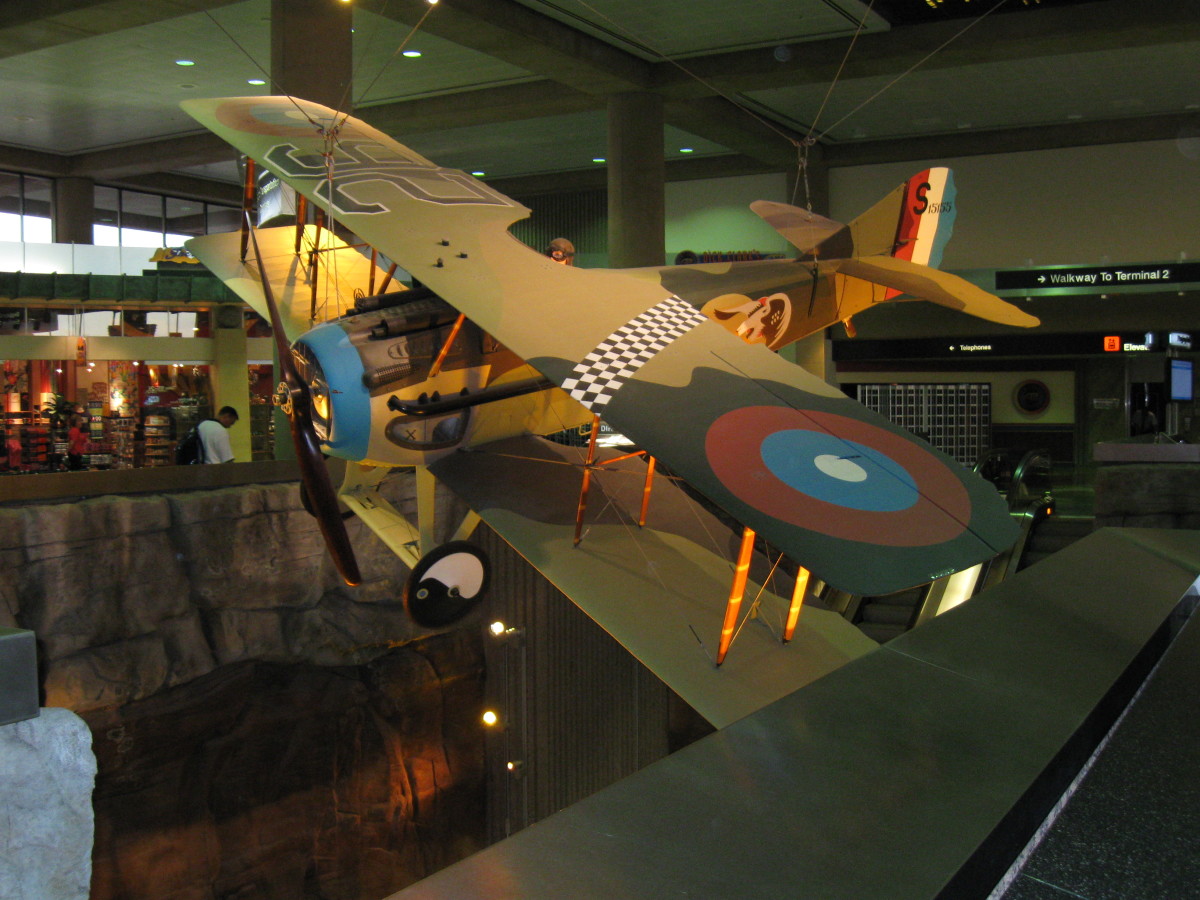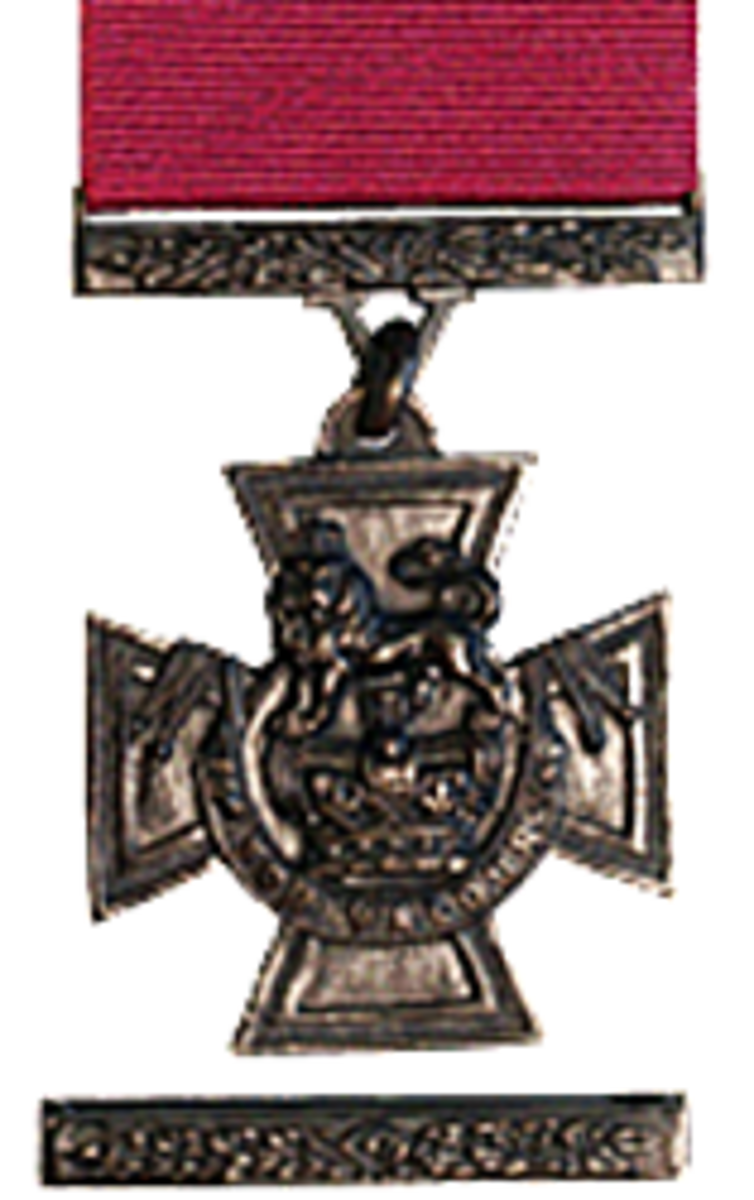World War II True Story: Soldier Reminisces -- "I Walked across Crocodile River."
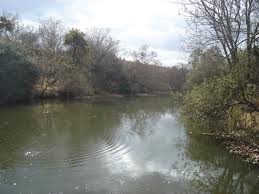
Arriving on the island of Guadalcanal
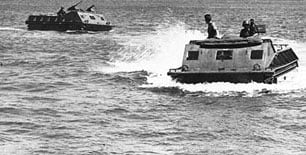
Memories of a WWII Army veteran
This is a true story related to me by my late stepfather, Vernon Durrell Ritchie.
In the late 1980s, my stepfather called and told me he and Mom planned to attend a reunion of his World War II Army battalion. The invitation encouraged veterans to share anecdotes from their wartime experiences during the event. He asked me to “...work your magic....” on his handwritten account of an occurrence he thought might be interesting enough to contribute to the Army reunion narratives.
My step-dad was a wonderful oral story-teller who could keep his audience spellbound, but realized he was not an effective writer. I had to completely re-write the story, but did my best to keep his "voice" throughout. Therefore, the story you are about to read is his, and it really happened. I was pleased to learn he was asked to read “I Walked Across Crocodile River ” to those assembled at his Army reunion. I’m told there was a lot of applause when he finished. I'm glad they applauded.
----------------------------------------------------------------------------------------------------
The Army duck rolled from the choppy Pacific waters onto the sandy beach and rumbled to a halt.
“Everybody off!” yelled the driver. “Welcome to Guadalcanal!”
Soldiers scrambled from the amphibian carrier’s belly into a night so dark only faint silhouettes of palm trees were visible. While I was still trying to gain my bearings, another shout rang out.
“Everybody over here on the double! Load up on this truck.”
By now, I was accustomed to being hollered at, after being initiated into the basics of wartime Army duty at Camp Crowder, Missouri. It was there I became part of the U.S. Army Signal Corps, 112th Radio Intelligence Company. This was shortly after I answered the urgent summons from my Uncle Sam to go help him whip the enemy and end the infernal war so everybody could go back home.
The moonless south Pacific island where I now found myself seemed a long way from boot camp and a world completely removed from the south Mississippi farm where I grew up.
I climbed aboard the truck with the rest of the guys, and it lurched away into the night. The ride was bumpy, but short. I estimated we’d gone about five miles when the truck stopped, and we heard this terse announcement.
“Here are your quarters for tonight, men. Set up your tents and get some sleep.”
Sleep sounded like a good idea to me. My buddies and I rustled around in the dark spreading our scratchy Army-issue blankets on the ground. I crawled inside the tent that was just large enough to shelter me and rolled up my extra blanket to use as a makeshift pillow. As soon as I stretched out and lay down my head, I realized there was a rock beneath it. I reached beneath the roll, shoved the rock out and heard it roll under the edge of the tent. I settled down and, bone-weary from a very full day, was soon asleep.
Next morning I awoke and stepped out into the sunlight to survey my temporary home. The “rock” lay where it had rolled to a stop the night before. I stared down at a human skull. Were we bivouacked in a bone-yard? I’d heard that bodies of slain enemy soldiers were left behind in the withdrawal of their troops from the island. Here was unsettling proof that, after carrion finished their grisly chore, the bones had bleached in the hot sun.
I had often stumbled across the bones and skull of a cow that had died in the woods on our farm, but looking down at the skull that was once encased by a human’s face and scalp was a very different and quite sobering experience.
A walk around the area confirmed we were camped at the base of the infamous Edson's Ridge, or Bloody Ridge, where so many brave American soldiers perished in the first assault on Guadalcanal.
The truck ride from the beach had been pretty crowded with sweating bodies, but a nice change had been planned for us that morning. Orders were given, and we loaded our gear into backpacks for a nice seven-mile hike on a sunny day.
We reached our intended campsite only to find it completely under water. For the next few hours, my buddies and I hauled sand continuously until the ground was above water.
There were times when I had the feeling those generals running the Army operated under the same theory as had my grandma: Idle hands are the devil’s workshop. I’d learned pretty fast that the Army knew how to keep the devil at bay!
After a great deal of labor, we were finally organized and settled in to stay a while. I was cleaning my stripped-down weapon when I overheard one of the other guys make an interesting remark.
“They say there’s a village about fifteen miles back in the jungle where an American missionary and his daughter live among the natives.”
“Suppose they made it through the occupation alive?” I wondered.
Someone else spoke up, “Maybe we ought to go check on them. We could leave first thing in the morning.”
The three of us who took part in that conversation decided to go.Robinson was a stocky twenty-year-old from Missouri. Raines, a slim fellow like me, hailed from Ohio.
At first light, we loaded our packs with mattress covers, ammunition, “C” rations and the bittersweet chocolate bars none of us could stand to eat, but which were good for bartering.
We climbed aboard a Jeep, and a fourth soldier drove us to the banks of a swift-running river. It looked to be about a hundred feet across. He watched as we stepped out into the river until we were waist deep and started across.
The river grew deeper as we moved toward the middle, and we had to hold our packs and guns above our shoulders to keep them dry. This alone was a strain, but the water ran so fast that it was extremely difficult for us to keep our balance. My feet seemed to slide with every step. It felt as though I were walking on big rocks lining the river bed. The water reached my armpits before it began to get shallow again, and finally, there was the river’s other side.
We splashed out of the water, dropped our packs and guns away from the edge and fell back on the bank. The sun’s heat was already beating down in the early morning, and it felt good after the chill of the river. We rested for a bit, and then, after checking our gear, we continued our journey.
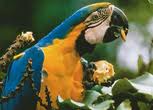
As we strode into the jungle, thousands of startled parakeets, brightly-plumaged parrots and macaws deserted their perches in the trees. They blacked out the sky as they flew up through the tangled branches of closely-spaced trees. The flutter of so many wings was like a heavy sigh. The sound reminded me of frosty mornings back home when my brother and I walked across fields with our bird dog and shotguns in hopes of flushing out a covey of quail.
A trail led through the thick underbrush. The three of us cautiously picked our way along, intently watching for snakes. We’d been warned there were deadly varieties of serpents in this part of the world, and none of us wanted to step on one.
Suddenly, a wild boar ran out of the snarled undergrowth and charged straight down the path toward us.Robinson raised his rifle and shot the animal smack between the eyes. It dropped instantly almost at our feet. I sure was glad that Missouri boy was such a good shot. Now that the sharp tusks curving from the beast's mouth no longer presented a mortal danger, we stood admiring them.
“Now, why do you suppose a wild pig would rush us like that?” I wondered aloud. “I’d have expected it to run the other way.”
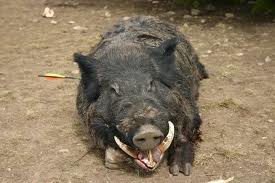
Unexpected meeting with former cannibals
At that moment, the hair on the back of my neck got that prickly feeling that made me look up. Along the edge of the path ahead of us stood more than a dozen grass-skirted natives, spears and shields in hand. Most wore bones piercing their noses and ears. Their teeth were filed into points like the edge of my daddy’s handsaw and stained a deep purple. A couple of these men were draped with loincloths instead of grass kilts, but paint adorned the faces of everyone in the group. The shields they carried were decorated with designs in similar colors.
Could these be the south Pacific cannibals of whom we’d heard so much? It was said they had forsaken their barbaric custom of eating human flesh, which gave me some consolation. Still, being face to face with a bunch of cannibals—even reformed ones—could only be described as chilling. Their faces were stern, their eyes dark fathomless pits.
Raines murmured, “I wonder what they want.”
I looked from face to face, and everywhere I looked met a silent stare that bore into my eyes. I turned toward Robinson.
“I think they want to know what you’re gonna’ do with that hog. They must have been after it when you shot it.”
He looked relieved.
“Hell, I don’t want that damned pig. They can have it.”
“Don’t tell me…tell them,” I said.
He gestured broadly with his hands, first pointing at them, then at the boar. Back at them, back at the boar. All the while he chattered nervously in pidgin English in his friendliest-sounding tone of voice, obviously trying to convey they were more than welcome to that pig meat.
A rumble of sound went through the group, and two of their number peeled away from the edge. They ran up to the boar, hoisted it aloft and carried it off into the jungle. The others ran off closely behind them. In seconds, they had disappeared from view, and the only sound left was the twitter of countless tropical birds.
We moved further along the path, still uneasy from the encounter. Though none of us spoke, it was likely the others felt as I did, that we were probably still being watched by those dark eyes. There was no sign of life, but every few feet one or all of us looked around to see if we were being followed.
By afternoon, we spotted the village, a cluster of grass huts encircling a larger building constructed of bamboo with a thatched grass roof. There was no one in sight as we walked into the center of the compound.
“Hello, there! Hello!”
We hollered some more, then began looking around the huts. In a few minutes, about fifteen native men came out of the jungle and gathered around us silently. At least, these had no sharpened teeth, and apparently they decided we weren’t hostile. A few minutes later the women began appearing, with children following in their wake.
We pulled the mattress covers from our packs and spread them out on the ground. The villagers eagerly fingered the fabric. Faces lit up with smiles at the sight of the candy bars and “C” rations. It was easy to see we had the advantage of a seller’s market. In only a few minutes, we traded our wares for grass skirts, battle axes and other souvenirs.
We spent the night sleeping on the floor of the primitive little church. The missionary and his daughter weren’t there, and there was nothing left that might have belonged to them. Our pidgin English, combined with gestures, produced other arm and hand motions from villagers that seemed to portray a story of the missionary and his daughter going away. We could only hope they left of their own accord and reached safety.
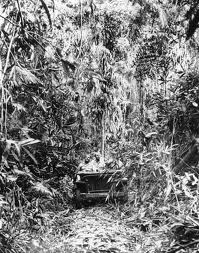
Three young soldiers heading back to camp
The next day, we made it back to the river by mid-afternoon and waded back across, where a Jeep was left waiting for us. We drove back to our Army unit to finish our job of helping win a war. Two years later, I was back in the states, once again a civilian.
Sometime in the early ‘50s, I read an article in the now-defunct magazine, TRUE, about a river on Guadalcanal called Crocodile River. Its name was derived from its being more heavily infested with crocodiles than any other river in the world. The article stated that all the crocs had mysteriously disappeared when the bombing and shelling began on the island, and they didn’t reappear until more than two years later. Scientists believed that all the noise and commotion was too much for them, so they buried themselves in the silt of the river bed to hibernate until the noise-makers were long gone.
I lay aside the magazine and thought about that river Robinson, Raines and I forded on foot. We must have walked across Crocodile River and not even realized it! What else would explain those slippery bumps lining the river bottom? Were they not rocks, as we had supposed, but…sleeping crocodiles? When my feet were slipping and sliding as I struggled not to fall into the water, was I trying to keep my footing on the backs of big reptiles known for their nasty tempers and matching eating habits?
Stranger things have happened in this world, but it seems to me now that God had his hand on three young soldiers, for we lived to return home and tell the story.
How true it is that “fools wade in where angels fear to tread.”
Were there crocodiles on the bottom of that river?
